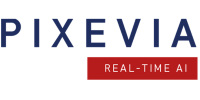
In recent years, governments and municipalities paid more attention to smart cities and their infrastructure. Smart parking lots are a major component of a smart city’s ecosystem. There are various solutions that track occupancy for underground or multistory garages and efficiently guide customers to free spots. Guided parking lots come together beautifully to form a picture of a smart city, together with energy efficient smart shopping malls or sports arenas next to them. Everyone likes the well-known benefits of guided parking lots, like time-savings for drivers and general traffic reduction. Both of these benefits also reduce CO2 emissions and increase customer satisfaction.
But what can you do, if you have a huge open parking lot with 1,000, 4,000 or more parking spots? How can you make it smart and provide an ecological and customer friendly city infrastructure?
The answer to these questions came to life just a few years ago with improvements of artificial intelligence systems and computer vision. Now is the time when everyone in the parking industry can and should exploit these substantially improved technologies.
Previously, to automate an open parking lot with 2,000 spots you needed to buy 2,000 separate sensors, set each one up and put them into the ground. Moreover, in parts of the world with snowy winters, snow trucks would destroy a few dozen of them each season.
With the help of AI and computer vision-based guidance systems like PIXEVIA, one can cover all 2,000 spots with approximately 20 off-the-shelf security cameras. That’s 100 times less hardware units to install! And the cost savings are substantial, where the cost of each separate ground sensor would cost around 100-200 USD, a single suitable camera costs about just 100 USD and can overlook up to 150 spots.

Major features of PIXEVIA camera-based smart parking guidance solutions:
- Easy deployment – there is no need to mount sensors everywhere or build barriers with dedicated LPR cameras.
- Cost efficiency – a single camera can cover up-to 250 parking spots and recognize license plates at the same time.
- Increased security – top notch solutions offer security alerts for uncommon behavior in the parking lots. For example: illegal gatherings at night, suspicious behavior next to a car, illegal parking.
- Increased customer satisfaction – AI and camera-based systems not only help to find a free parking spot, but also usually have the “find my car” feature, as the system not only detects occupied spaces, but also knows which car is occupying which parking spot according to LPR.

If you are interested in a camera based smart parking solutions contact PIXEVIA for a consultation at www.pixevia.com.
About PIXEVIA 
PIXEVIA - artificial intelligence-based smart city solutions company. PIXEVIA uses simple security cameras to analyze the real world. It's proprietary algorithms can precisely detect different everyday objects like cars, number plates, people, faces, consumer goods. Gathered intelligence is used to empower companies to achieve new levels of operational performance and customer satisfaction.
Company started in 2015 as an AI and computer vision company for a Lithuanian Ministry's of Defence project. After the project ended, computer vision software was commercialized for a smart parking lots, retail shops and other smart city applications.






